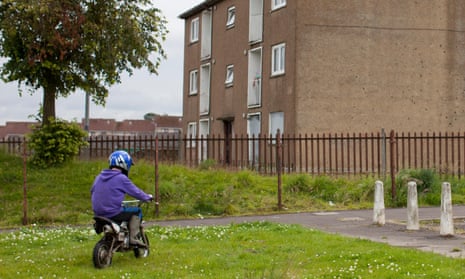A boy born in 2018 in one of the 10% most deprived areas of Scotland will live for 13 years less than a boy from the most affluent areas, according to data published by the National Records of Scotland (NRS).
While Scotland continues to have the lowest life expectancy in the UK – as it has done since the early 1980s – the figures published on Wednesday suggest that recent improvements have stalled with soaring drug deaths and heart disease to blame.
The NRS’s Annual Review of Demographic Trends also shows that, while the mid-2018 population of Scotland had reached a new high – for the ninth consecutive year – of an estimated 5,438,100, the country’s birth rate is now the lowest of all UK countries and falling at the fastest rate.
There were 51,308 live births registered in 2018, the lowest annual total since 2002 and the second lowest annual total since records began in 1855.
Instead, migration continues to be the main driver of Scotland’s population growth, although net migration has decreased over the past two years.
The figures are a stark reminder that deprivation has a significant effect on life expectancy, and an even greater one on healthy life expectancy.
Girls born between 2015 and 2017 in the 10% most deprived areas in Scotland can expect to live 9.6 years less than those who live in the 10% least deprived areas.
Women living in the 10% least deprived areas can expect to spend 23 more years in good health than those in the 10% most deprived areas. For men, the difference in healthy life expectancy is 22.5 years.
The head of public health at NHS Scotland, Gerry McCartney, said the stalling of life expectancy improvements in Scotland was a real concern.
He said: “The circumstances in which we live should not impact on health so much that the right to live a long and healthy life is compromised by how much money we have.
While the death rate remains largely stable, dementia and Alzheimer’s deaths were three times greater in 2018 than in 2000, making them the second most common cause of death in 2018. The most common cause remains ischaemic heart disease, which is responsible for 11.3% of all deaths.
Registrar General for Scotland, Paul Lowe, said: “This year’s review shows that there have been changes in Scotland’s life expectancy and mortality trends.
“Life expectancy in Scotland has been increasing over the long term, but recent estimates indicate that it has stopped improving.
“The largest causes of the stall in life expectancy are the slowing of improvements seen in the reduction of deaths from heart disease and increases in drug related deaths.”
